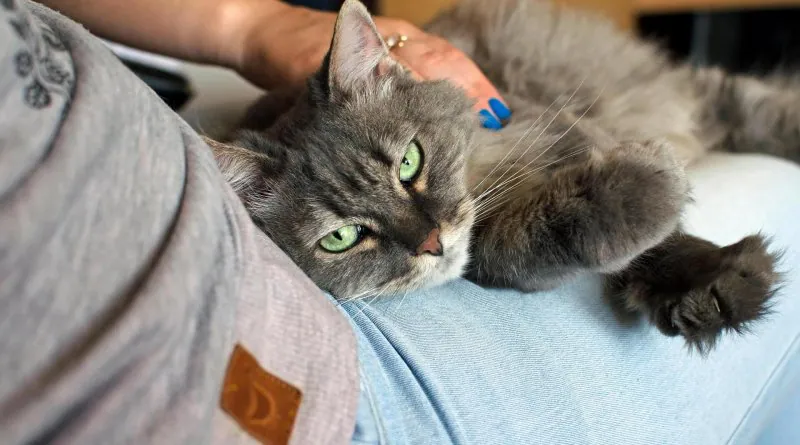Boarding a Diabetic Cat: What to do With Your Diabetic Cat When You’re Away
Last Updated on
When your job is pretending to be your cat’s pancreas, you can’t just take a day off. If you go on a trip for a day or more, it becomes someone else’s responsibility to make sure your cat gets the right food and his insulin shots while you’re away.
Your first option is boarding your cat at the veterinarian.
If your cat knows and likes the vet, this may be your best option. Your vet knows your cat and is experienced dealing with other diabetic kitties, so you won’t have to worry that your cat isn’t receiving thoughtful expert care. Remember that veterinary boarding facilities tend to fill up fast, so it’s best to make your reservation months in advance of your trip.
The biggest downside of a veterinary boarding facility? Stress. Diabetic cats spend a lot of time at the veterinarian and some may have become accustomed to it, but others will be intensely fearful and the experience of being dropped off and left at the vet for days on end could verge on traumatic.
Non-veterinary boarding facilities are also an option, but you have to choose to right one.
Non-veterinary boarding facilities will provide diabetic care to some extent, but most aren’t staffed 24 hours a day and some have limited expertise on and an understanding of feline diabetes. No one will be there if your cat has a hypoglycemic episode in the middle of the night. Most won’t adjust insulin injections based on how much your cat has eaten. Though feline diabetes’ prevalence has likely made the staff familiar with these conditions, most aren’t experts.
Check out the boarding facility and get a feel for it before you drop off your cat. Appropriate boarding facilities will ask if your cat is a stable diabetic, which type of insulin you use, when and how frequently you administer insulin, and which types of food your cat eats. If they don’t ask, volunteer any pertinent information.
The right pet sitter can be a great option, but you have to be extremely careful.
If you’d rather let your cat stay at home while you’re away, you’ll need to hire a pet sitter or ask a friend to come into your house and care for your cat. Ideally, this person should stay in your home day and night.
Most professional pet sitters are experienced with giving insulin, but you must screen your candidates carefully. You could also ask a friend or family member. Bonus points if this person has a relationship with your cat and mega-bonus points if this person has given him insulin before.
Give your sitter an insulin injection and blood testing tutorial before you leave. Ask them to do a shot on his own in front of you just to make sure she’s got it down pat. Provide a calendar to keep him or her on track. Make sure they understand the seriousness of hypoglycemia and provide your veterinarian’s phone number in case something goes wrong.
Again, this isn’t a job to give to any teenager on the block. You want someone who is ultra-reliable, not busy with other things and, ideally, loves your cat almost as much as you do. They need to understand and internalize the importance of doing their job correctly. If you pick the wrong person, they might not kill your cat, but they’ll almost certainly resent you.
Finally, even if you never take a single weekend trip, there may come a time when you’re not able to care for your cat.
Accidents, illness, death, and your cat getting lost could all leave your cat without an experienced carer.
It’s a good idea to give your cat identification so that, if he wanders outside and gets lost, rescuers will know about his diabetes and will be more likely to provide the appropriate care.
Just like a diabetic human might wear a bracelet to let others know about their condition, give your cat a custom collar or tag that tells others about his diabetes. Your customized identification collar might read: “DIABETIC. NEEDS INSULIN DAILY. IF FOUND CALL VET.” with your veterinarian’s phone number. If your cat is microchipped, you can also add his diabetes to his profile.
Whether you get into an accident and go into a coma for weeks or your cat shows up on a distant doorstep, this identification will help others care for your cat when you can’t.
Now I want to hear from you!
How do you ensure that your diabetic cat receives appropriate care when you’re not home? Do you have a trusted sitter? Would you leave your cat at an ordinary boarding facility or do you only trust your veterinarian?








